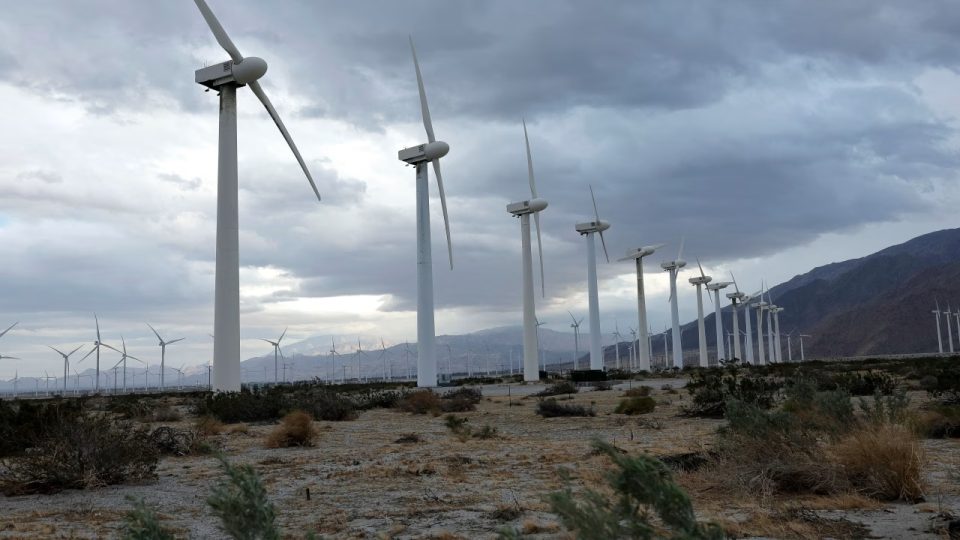The U.S. Senate is set to vote on a sweeping tax and spending package that could deal a major blow to the country’s solar and wind industries, with provisions that would eliminate key incentives and impose new taxes on renewable energy projects. The bill, which reflects President Donald Trump’s push for a dramatic shift in energy policy, has alarmed analysts and industry advocates who warn it could halt the expansion of clean energy and lead to higher electricity costs for consumers.
The legislation would not only gut hundreds of billions of dollars in subsidies and tax credits for solar and wind projects, but also introduce a new excise tax targeting facilities that use components sourced from countries like China, a move that could disrupt supply chains and raise costs across the sector.
Morgan Stanley analyst Andrew Percoco described the Senate bill as “close to a worst case scenario” for renewable energy, citing the combined impact of rolling back tax credits and adding new financial burdens on future projects. The proposed changes would sharply reduce the benefits provided under the Inflation Reduction Act (IRA), which has been a major driver of clean energy investment since its passage in 2022.
The Senate’s revised energy bill introduces immediate and substantial cuts to tax credits for solar and wind projects, requiring that facilities must be operational by the end of 2027 to qualify, tightening eligibility compared to earlier rules that allowed credits based on when construction began. The phase-out schedule is steep: projects starting in 2026 would receive only 60% of the credit, those in 2027 just 20%, and any project beginning in 2028 or later would not qualify at all.
Additionally, the bill imposes a new excise tax on wind and solar projects that become operational after 2027 if they use components from “foreign entities of concern,” primarily targeting Chinese materials. This tax would apply even to projects not receiving tax credits, raising costs by an estimated 10–20% and affecting all projects that began construction after June 16, 2025. The legislation also eliminates incentives for consumers, abruptly ending credits for home energy efficiency improvements, electric vehicles, and charging infrastructure. In contrast, the bill introduces a new production tax credit for metallurgical coal, marking a clear shift in support toward fossil fuels. Industry groups and analysts warn that these changes could jeopardize investments, increase consumer energy costs, and hinder clean energy growth, particularly in rural communities.
Renewable energy advocates and policy analysts have reacted with dismay. Adrian Deveny, president of the policy advisory firm Climate Vision, called the new tax a “kill shot” designed to cripple the industry. The Rhodium Group estimates the combined effect of these provisions would raise the cost of wind and solar projects by 10 to 20 percent, with those increases likely passed on to consumers through higher electricity rates.
The National Electrical Manufacturing Association projects that U.S. electricity demand will grow by 50 percent by 2050, driven by factors such as data center expansion and reshoring of manufacturing. Solar and wind have been the fastest-growing sources of new power generation, and states with high levels of utility-scale solar have seen electricity bills up to 24 percent lower than the national average as recently as January 2025. Removing incentives and adding new taxes could stall this momentum, potentially leading to electricity shortages and higher prices, as some lawmakers and industry leaders have warned.
Companies like First Solar (NASDAQ: FSLR), the largest U.S.-headquartered solar manufacturer, has invested heavily in domestic production and supply chains, with operations spanning multiple states and supporting tens of thousands of jobs. The company’s leadership has argued that maintaining stable policy support is crucial for continued investment and job creation, as well as for keeping electricity affordable for American households.
Despite some Republican policymakers expressing support for preserving certain manufacturing tax credits, the overall direction of the Senate bill suggests a significant retreat from federal backing of clean energy. The uncertainty created by these policy shifts could delay new manufacturing projects and disrupt the growth of renewables at a time when the U.S. grid is under increasing pressure to expand capacity.
If enacted, the legislation would mark a major turning point for U.S. energy policy, with far-reaching consequences for the renewable sector, electricity consumers, and the broader economy.

